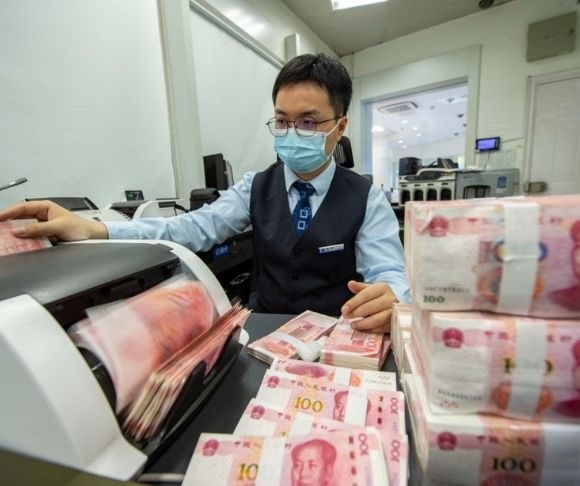The Chinese economy is experiencing a post-pandemic slowdown, despite the Red Dragon spending hundreds of billions of dollars to resuscitate its economic landscape. For years, when China coughed or sneezed, the United States and the rest of the world would contract influenza. Today, conditions have been altered, and a sluggish Beijing might turn out to be a mixed blessing for the United States and the plethora of challenges weighing on the nation and the rest of the world.
Chinese Economy Feels the Pain
[substack align=”right”]Global financial markets initially had a stomach bug when they saw the latest National Bureau of Statistics (NBS) numbers coming out of China. However, after some digestion of the data, investors eventually dismissed it, placed the information in a filing cabinet for future reference, and turned their attention to the US housing market slipping into recession.
Here is a rundown of what happened in the Chinese economy during the dog days of summer. Industrial production rose 3.8% year-over-year in July, falling short of the market estimate of 4.6%. Retail sales advanced at an annualized rate of 2.7% in July, below economists’ expectations of 5%. Housing prices tumbled again by 0.9% year-over-year last month. Year-to-date fixed asset investment eased to 5.7% year-over-year – after inflation came in hotter than anticipated – while money supply growth was more extensive than median estimates.
Investors will now brace for August’s NBS and private-sector manufacturing and non-manufacturing purchasing managers’ index (PMI) prints. This will happen in the upcoming week.
But while the response among the leading benchmark indexes – from the Dow Jones Industrial Average to the FTSE 100 – was subdued, the commodities arena cratered on the news. West Texas Intermediate (WTI) crude oil fell 5% in the first two sessions of the week to around $87 a barrel on the New York Mercantile Exchange. Brent, the international benchmark for oil prices, also declined by roughly the same pace to under $93 per barrel on London’s ICE Futures exchange. The agricultural market also sank, with soybean and corn contracts plunging about 3% and 2%, respectively.
China is currently the world’s largest consumer of many of these commodity products. However, if the economy is cooling, demand volumes for oil will shrink and allow prices to stabilize in global energy markets. In July, Chinese imports of crude oil and refined petroleum products tumbled by 9.5% and 35.3%, according to the General Administration of Customs, which added to the broader selloff.
Put simply, the less China consumes, the more there is for everybody else, allowing inflationary pressures to subside. This is beneficial for consumers, whether at the pump or the supermarket. However, not everything will be tied up in a neat little package because there are other developments to keep an eye on over the next several weeks.
Wait a Minute

(Photo by Thierry Monasse/Getty Images)
Should the international crude market edge closer to balance amid escalating recession fears, one cartel could buck the broader supply trend, defy the White House, and begin slashing output. This group is, of course, the Organization of the Petroleum Exporting Countries (OPEC).
OPEC recently published its demand outlook heading into 2023. Its conclusion? Not great. It slashed its forecast for oil demand growth, citing the global economic downturn. This report was notable because it was a complete reversal of its previous projection. At the same time, the International Energy Agency (IEA) raised its demand estimates for 2022 and 2023, contradicting its report from June.
This matters for two reasons. First, it could prompt OPEC to either freeze production levels or cut output at its next policy meeting in Vienna. Second, if the entity scales back its capacity efforts, prices could return above $90 a barrel. Remember, the global oil market is incredibly fragile right now, making it highly vulnerable to supply-and-demand dynamics. Moreover, with Saudi Arabia selling its crude at a premium, making Asian markets spend more on energy product, there is a special incentive to trim supplies and force its competitor to endure higher prices.
Still, it is worth noting that Beijing and Riyadh have bolstered their relationship. As Liberty Nation recently reported, Saudi Arabian Oil Company and China Petroleum & Chemical Corporation (Sinopec) signed a new agreement that facilitates greater cross-border investment, purchases, and trade. The pact meets the objectives of China’s Belt and Road Initiative (BRI) and the Kingdom’s Vision 2030 campaign. Is this the de-dollarization push? Will China continue to decouple from the United States? Do the Saudis sense a better opportunity looking east?
Gas Prices

(Photo by John Smith/VIEWpress)
The US average for a gallon of gasoline is below $4, tumbling 21% from its June peak. The administration and a growing number of industry observers are confident the United States could see $3 by the fourth quarter. Demand destruction and recession concerns have been the main drivers for this dramatic drop. Motorists staying home, investors turning bearish on Texas Tea, and slowing economic growth have allowed crude oil and gas prices to slump. Is this the bottom, or is there more room to fall?
Nevertheless, it is fascinating to realize that it took a recession to trigger a collapse in the commodities ecosystem rather than fostering the power of American energy independence. In the process, a restructuring of the geopolitical arena is taking place, enabling the rise of the BRICS (Brazil, Russia, India, China, and South Africa). The United States is now stuck between a barrel of crude and a lump of coal: endure high inflation or let its adversaries control the international community.
The next critical question: What happens to the global marketplace, inflationary pressures, and the Chinese economy if China invades Taiwan?




